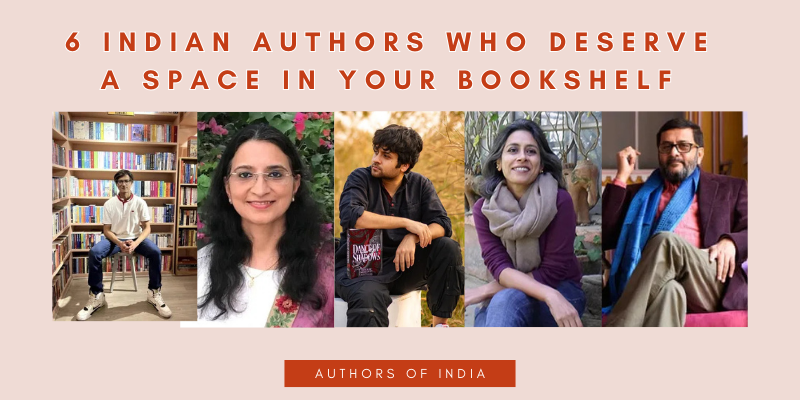“If you won’t tell your story, someone else will, and they won’t do it right.”
A line often quoted but credited to no one in particular is what could be the fuel of the Indian literary scene today.
For centuries, India has been narrated by others: colonial chroniclers, foreign academics, travel writers who “discovered” our landscapes as if they weren’t already lived in. The power of reclaiming those narratives lies with our writers today. Indian authors are not only telling their own stories but are also reshaping what it means to be Indian in literature: deeply rooted, fiercely original, and globally resonant.
Stories are how cultures remember themselves. When Indian authors write, they are preserving languages, reviving myths, critiquing societies, and offering windows into lives often invisible in mainstream narratives.
Yet, many of these voices remain at the margins. In an industry where advances are meagre, royalties unreliable, translations underfunded, and piracy rampant, Indian authors often write despite the system rather than because of it. New voices particularly struggle, crowded out by celebrity authors, self-promotion demands, and a lack of supportive literary infrastructure. Still, against these odds, powerful works are emerging- fresh, urgent, and uniquely Indian.
1. Gourav Mohanty
Lawyer by day and comic performer by night, Gourav Mohanty has carved a niche in Indian fantasy with his Sons of Darkness and its sequel Dance of Shadows. Drawing from the Mahabharata, Mohanty reimagines myth in the style of grimdark fantasy, weaving moral ambiguity, power struggles, and richly textured world-building. His work stands as proof that India’s ancient epics have immense potential to garner global interest and recognition.
2. Sheela Tomy
From Wayanad, Kerala, Sheela Tomy’s fiction gives voice to the land, rivers, and forests that cradle them. Her debut Valli, and later Don’t Ask the River Her Name speak urgently about a truth we can no longer ignore, that the planet itself has stories to tell, if only we would listen.
Her work reminds us to decenter humans for a moment and to look at the world ecocritically. To understand how we are not separate from nature, but an inherent part of it. Our survival is intertwined with the ecosystems we inhabit. What makes her writing remarkable is that it is both deeply rooted in Kerala’s soil and urgently global, contributing to a conversation that transcends borders: that literature must bear witness to the Earth as much as to human lives.
3. Vivek Shanbhag
Best known for the novella Ghachar Ghochar, Shanbhag writes in Kannada with an elegance that turns brevity into brilliance. His spare prose captures family tensions, shifting social values, and the quiet disintegration of bonds. With translations like Sakina’s Kiss, Shanbhag’s fiction proves that India’s regional writing, when carefully translated, can achieve global resonance without losing cultural specificity.
4. Anuradha Roy
A novelist and publisher (co-founder of Permanent Black), Anuradha Roy straddles two roles: shaping the Indian literary ecosystem and contributing to it with her own fiction. Novels like Sleeping on Jupiter and All the Lives We Never Lived weave personal lives into larger historical currents: colonialism, freedom struggles, and cultural transformations. Roy’s prose is lyrical, her themes expansive, and her work a reminder that Indian literature is not monolithic but layered with histories both political and personal.
5. Harsheath Chauhan
From an early age, he was fascinated by Indian mythology and superheroes, often using his action figures to create mythic narratives set in modern India. These childhood imaginations evolved into a fully-developed story universe, culminating in his debut series, Kaliyuga: The Awakening of the Tenth, its sequel Kaliyuga: The Awakening of the Phase and the third on its way. His Hindu-Buddhist lineage and tradition of activist writers have deepened both his craft and his spiritual outlook.
Alongside writing, he is also an ultra-runner, often drawing inspiration and story ideas during his long runs through the hills. With Kaliyuga, he introduces readers to a world where mythology, fantasy, and philosophy converge, marking him as one of the most promising new voices in Indian speculative fiction.
6. Ballianda Rachana Appachoo
Daughter of an Indian Air Force officer, grew up fascinated by weapons and wars, a passion that later found academic grounding through her graduate studies in Anthropology at Purdue University, USA. Her diverse upbringing as an Air Force child exposed her to different parts of India, while her personal interests led her to explore unconventional subjects like poison as a weapon. She brings a unique blend of personal curiosity and historical insight to her work. Her book War Games: The Indian Who Succeeded Alexander the Great traces the rise of the Maurya dynasty and Chandragupta Maurya’s triumph over centuries of Persian and Greek dominance.
The Indian literary scene is alive, restless, and urgent. It is time we listen.
The voices of India carry a pulse to shape a larger movement, that is, reclaiming India’s well-deserved place in world literature. Stories are necessities; without them, we lose the chance to understand ourselves, where we come from, and where we belong.

